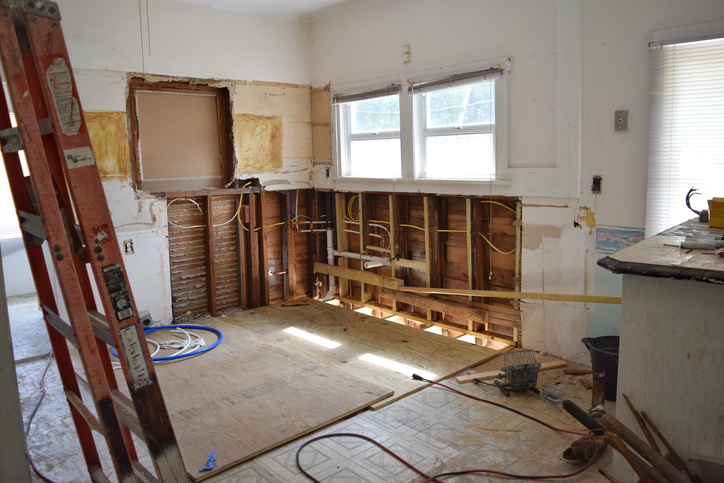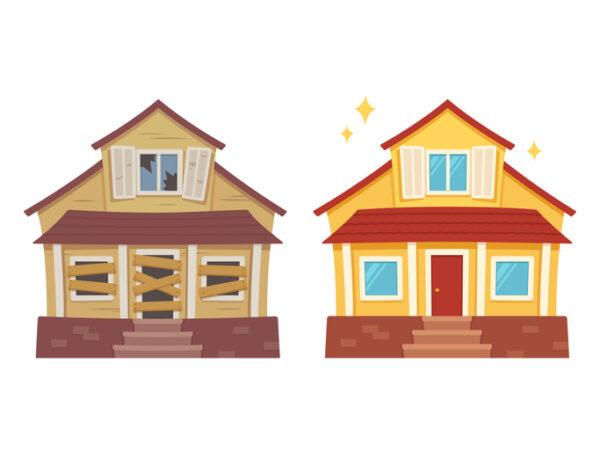
So, you’re considering buying a fixer-upper? Congratulations! You’re about to embark on a rollercoaster ride of potential rewards and challenges. Let’s dive into what you need to consider before signing on the dotted line and taking on the adventure of transforming a fixer-upper into your dream home.
1. Assess Your Skills and Time Commitment
First things first: Are you handy with a hammer, or is your DIY experience limited to assembling IKEA furniture? Be honest about your skill level and how much time you can realistically devote to renovations. Fixer-uppers require a lot of work, and unless you’re planning to hire professionals for every task, you’ll need to roll up your sleeves and get involved. If your schedule is already packed, consider whether you have the time to manage a renovation project.
2. Get a Thorough Home Inspection
A fixer-upper can hide a multitude of sins behind those charming old walls. Hiring a professional home inspector is non-negotiable. They’ll identify critical issues like structural problems, outdated electrical systems, and plumbing issues. This inspection will give you a clear understanding of what you’re getting into and help you avoid nasty surprises down the line.
3. Estimate Renovation Costs
Once you have the inspection report, the next step is to estimate renovation costs. Break down the repairs and upgrades needed and get quotes from contractors if you’re not doing the work yourself. Be sure to include costs for permits, materials, labor, and a contingency budget for unexpected expenses—because in the world of renovations, surprises are the norm, not the exception.
4. Understand the Financing Options
Financing a fixer-upper can be different from buying a move-in-ready home. Consider options like renovation loans, which can cover both the purchase price and the cost of renovations. The FHA 203(k) loan and the Fannie Mae HomeStyle Renovation loan are popular choices. These loans have specific requirements and processes, so make sure you understand what’s involved.
5. Evaluate the Neighborhood
Location, location, location! A fixer-upper in a desirable neighborhood can be a great investment. Research the area thoroughly. Check out property values, crime rates, school quality, and future development plans. Talk to the neighbors and spend time in the area at different times of day. An affordable fixer-upper in a declining neighborhood may not be a wise investment, no matter how stunning the final result.

6. Plan for Living Arrangements
Consider where you’ll live during the renovation process. Some fixer-uppers are in such rough shape that living in them while renovating isn’t feasible. Will you need to rent another place, or can you live with family or friends temporarily? Factor these additional living costs into your budget.
7. Prioritize Renovation Tasks
With your budget and time in mind, prioritize the renovation tasks. Start with the essentials: structural repairs, roof, electrical, and plumbing. Once the house is safe and functional, move on to cosmetic upgrades. It’s tempting to start with the fun stuff, like designing a dream kitchen or bathroom, but a solid foundation should always come first.
8. Consider DIY vs. Professional Help
Decide which tasks you can realistically tackle on your own and which ones require professional expertise. While DIY can save money, some jobs—like electrical work or major plumbing—are best left to the pros for safety and compliance reasons. Know your limits, and don’t hesitate to call in experts when needed.
9. Check Permit Requirements
Renovation projects often require permits from the city and even the historic districts. Check with the city to understand what permits you need and how to obtain them. Skipping permits can lead to fines, delays, and issues when selling the property.
10. Think Long-Term
Finally, keep the long-term perspective in mind. Renovating a fixer-upper can be stressful and exhausting, but the goal is a beautiful, functional home that meets your needs. Focus on the end result and remember why you chose this path: the potential for a customized space and a great investment.
Buying a fixer-upper is not for the faint-hearted, but with careful planning and realistic expectations, it can be an incredibly rewarding experience. You’ll learn a lot, gain valuable skills, and end up with a home that’s uniquely yours. Let’s go find your project!
Want to get listings and real estate info? Sign up for our newsletter!
